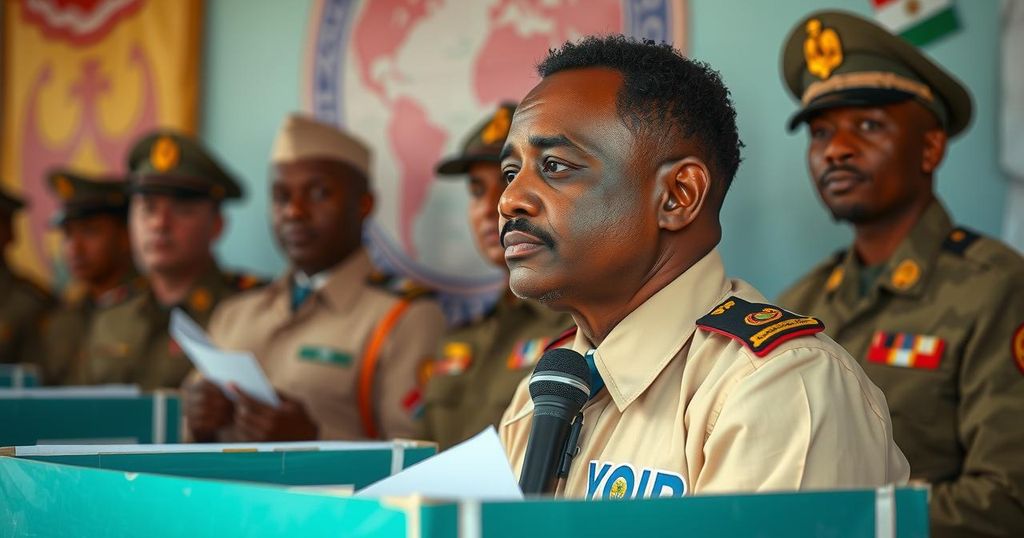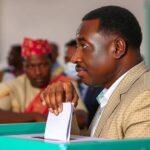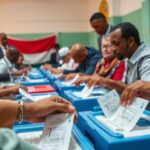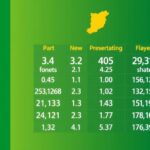Chad Conducts Elections Amid Opposition Boycott and Security Concerns
Chad is holding elections after three years of military rule, but the opposition is boycotting, alleging electoral fraud. Marshal Mahamat Idriss Itno’s government faces scrutiny amid accusations of an increasingly autocratic regime, with claims of pre-ordained election results and ongoing security threats. The elections are crucial for Chad’s political legitimacy but come amid significant challenges.
Voters in Chad are casting their votes in legislative, provincial, and local elections on Sunday, marking the culmination of a three-year military rule. These elections are contested by opposition candidates who are boycotting the process, alleging that last year’s presidential elections were marred by fraud. The governing party, aligned with Marshal Mahamat Idriss Itno, is seen as dominating the election landscape due to the absence of significant competition.
The opposition, led by figures like Succes Masra, has labeled the elections as a sham, urging citizens to refrain from participating. Masra noted, “It is better to stay at home,” asserting that a system has been established on deception and electoral manipulation, with claims that results have already been predetermined. Prior to the election, the opposition Democratic Party of the Chadian People (PDPT) reported the mysterious disappearance of ballots intended for Bongor, urging vigilance against alleged fraud.
Polling stations opened early in the day, accommodating approximately eight million registered voters, with oversight from foreign observers and political representatives. However, the election takes place amid grave security concerns, including threats from Boko Haram, tensions with France regarding military accords, and allegations of interference in Sudan’s conflicts.
Marshal Itno, who ascended to power following the death of his father, Idriss Deby Itno, in 2021, avows that these elections signify a pivotal transition towards democracy. Nonetheless, many citizens remain skeptical, recalling violent opposition crackdowns during protests in October 2022. Moreover, an ongoing strike by online journalists—protesting government-imposed restrictions—has resulted in a near news blackout, limiting coverage of the election, as private press outlets abstain from reporting due to the lack of government subsidies.
Collectively, these events highlight the myriad challenges facing Chad as it endeavors to navigate its political future amidst strife and uncertainty, reflecting broader issues of governance and democratic legitimacy.
Chad has been in a state of political turmoil, particularly following the death of long-time leader Idriss Deby Itno in 2021, which consequently led to the rise of his son, Mahamat Idriss Itno, as the head of a transitional government. The transitional government has faced significant opposition from various factions citing their electoral processes as fraudulent and undemocratic. Legislative elections had not occurred since 2011 due to numerous postponements influenced by jihadist threats and public health crises, making these elections critical to the perception of political legitimacy.
The upcoming elections in Chad represent a significant moment in the country’s struggle for democratic governance following years of military rule. However, the opposition’s boycott and allegations of electoral fraud raise serious questions about the validity of the process and the future trajectory of political reform in Chad. Amidst security challenges and media restrictions, the elections may indeed shape the landscape of governance and civil liberties in the nation moving forward.
Original Source: www.france24.com








Post Comment